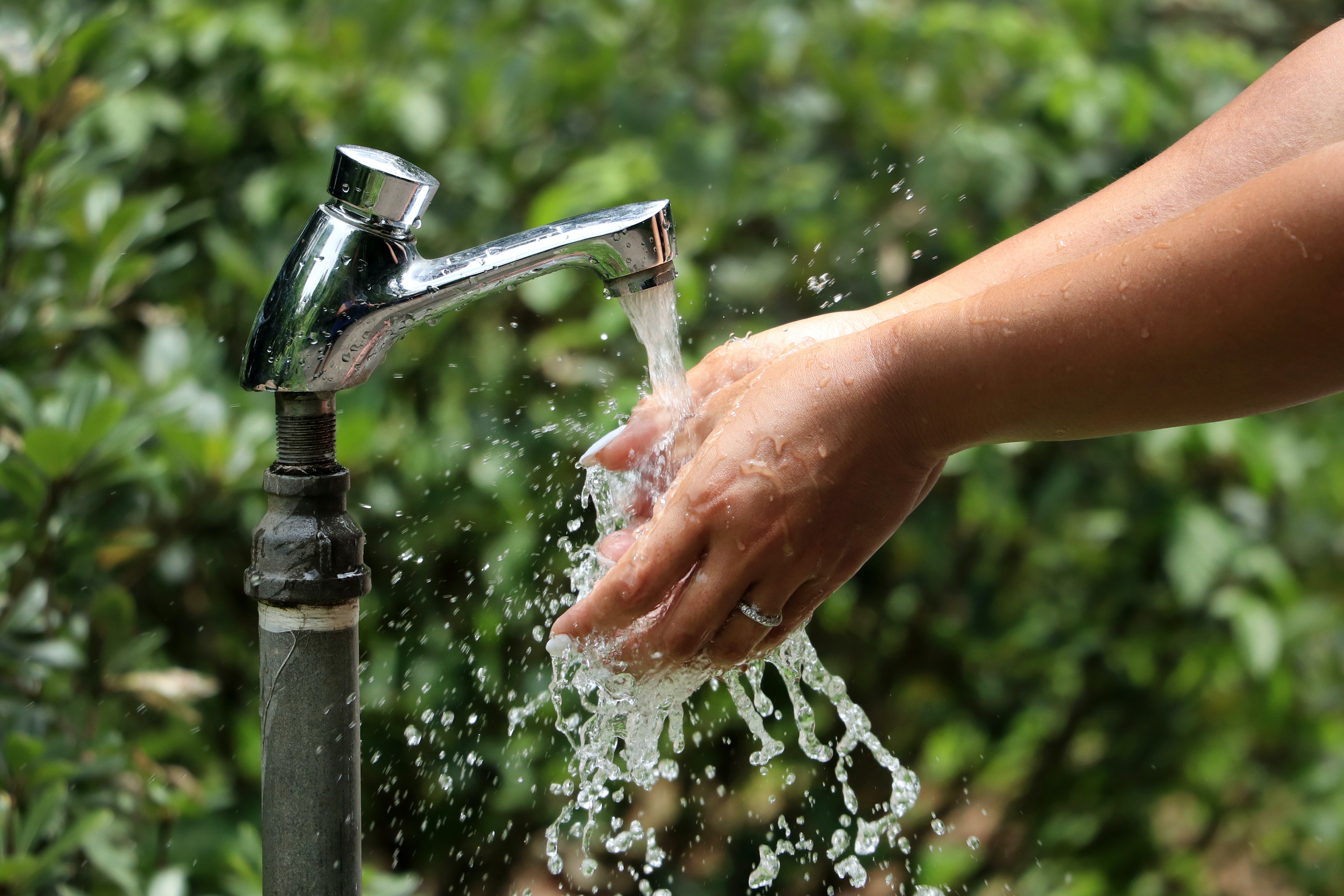When Charles Herrig visits his relatives in Mexico City he knows he should take short showers and avoid running the water for a long time.
“It’s because they don't have enough water and water supplies are low,” he said. “But the thing about Chicago is we have quite a bit of water [in Lake Michigan].”
So Charles asked Curious City: Is it also important to conserve water in Chicago? If so, why?
He’s especially curious about this in light of the near-record high water levels we’ve seen in Lake Michigan in recent years.
So we tracked down three local water experts, and asked if water conservation is still important these days in Chicago. They all generally agreed that yes, it is , citing some compelling reasons including money, climate change, laws and flooding.
Water Treatment Costs Money, So We Don’t Want To Waste It
“It’s important for us to promote conservation generally as a behavior,” says Metropolitan Water Reclamation District Commissioner Josina Morita, who also serves on the Great Lakes Commission.
But, she says, one of the biggest reasons to conserve Chicago water is because of all the processes that go into getting the water to and from our homes.
“We are pumping it, we’re filtering it, we’re treating it and we’re transporting it on the drinking water side,” she notes. “And then, once it goes down the drain, we are pumping, we’re disinfecting, we’re treating it and transporting it and releasing it down the river.”
Josh Ellis, vice president of the Metropolitan Planning Council notes that all those processes take lots of resources.
“Let's remember that the drinking water that comes out of your tap or shower takes electricity, chemicals, labor, infrastructure and a whole bunch of things,” Ellis says. “And so when you are conserving water or using water it all relates back to those resources, and all those things cost money.”
So by conserving water, we’re saving resources in lots of other areas, too.
And don’t forget that the money used to pay for these resources to treat and transport drinking water comes from citizens’ taxes and water bills. These bills in Chicago average almost $600 a year for the average household.
Chicago’s Water Supply Is Not Unlimited
Ellis further cites another, lesser known reason for conserving water in Chicago: “we can only take a certain amount of water from Lake Michigan on an annual basis and it doesn't matter if the lake is high or low.”
That amount of water was determined in a 1930s decree that capped Illinois and Chicago’s water usage to a flow of 3,200 cubic feet per second. Former Metropolitan Water Reclamation District president and water historian Dick Lanyon says we’ve actually hit the limit several times.
“Starting in 1930 until the ’80s… the state of Illinois was using the entire amount,” Lanyon said, noting that the decree came after other states complained that Illinois was taking too much water out of the lake to dilute its sewage.
Eventually, though, Lanyon said Illinois developed better water treatment processes and more efficient water distribution systems, which have kept us below our limit on usage for a few decades.
But Lanyon says this is no reason to get complacent about water usage, even if Lake Michigan has had some record high levels in recent years.
“If you get out of it when the lake is high,” he says, “then you might find it hard to get back in the habit when the lake is low.”

Climate Change Is A Factor
Researchers are not sure exactly if climate change will increase Lake Michigan’s levels in the long-term.
But scientists do expect climate change to drive more intense precipitation events along with more flood risks.
“So if you can reduce your use of water when it's raining and even when it's not raining it really helps reduce the risk of flooding and basement backups in the area,” Lanyon says.
Water usage also requires fossil fuels — think about the electricity it takes to treat it — so the more water we use, the more carbon emissions are created and that contributes to climate change.
Finally, the Great Lakes, including Lake Michigan, are not just ours. They make up 90 percent of the nation’s fresh water supply and provide drinking water to 48 million people.
More about our question asker

He got interested in local water conservation as part of his quest to be better educated about his community.
“I'm interested in the infrastructure in Chicago that is really invisible, that you don't really see,” he said.
Part of that invisible Chicago, he says, can also be food insecurity in parts of the city you might not expect.
“I work with a food pantry in Chicago called Common Pantry. It’s in [the neighborhood] North Center and is Chicago's longest continually running food pantry,” he says. “It's kind of a well-to-do community but… there is still a lot of need.”
For fun, Charles likes to travel the city on two wheels. He says he misses his biking commute now that he, like so many, have been working from home. But when he finds time he still likes “to bike to the park and read and just stay outside as long as I can until it's winter.”
Monica Eng is Curious City's reporter. You can reach her at meng@wbez.org


